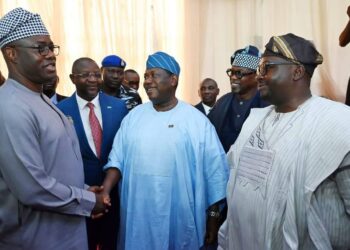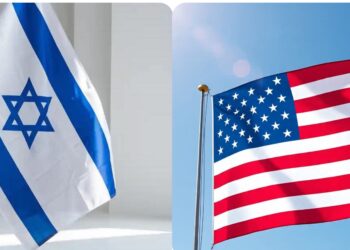Social media platforms have become an integral part of our lives, shaping communication, commerce, and even global politics. However, their regulation, or lack thereof, often triggers intense debates about governance, sovereignty, and freedom of speech. Recent events in the United States and Nigeria offer a fascinating lens into how governments approach the complexities of social media regulation—and how their citizens react.
The U.S. and TikTok: A Bold Move or Overreach?
In a dramatic twist, the United States recently deactivated TikTok, the Chinese-owned social media giant, within its borders. The ban wasn’t just a symbolic gesture or a temporary suspension—it was so comprehensive that even attempts to bypass the ban through illegal means have reportedly proven futile. This decision has sparked outrage, with many Americans lamenting the loss of an app that had become a cultural phenomenon, especially among younger demographics.
The move was justified by U.S. authorities on grounds of national security, citing concerns over data collection and potential links to the Chinese government. But the irony is glaring: the United States, a country that prides itself on its staunch defense of free speech, has taken a step that appears to contradict one of its core principles. Critics have questioned whether this action reflects an overreach in government control or a legitimate response to geopolitical threats.
Nigeria’s Twitter Ban: A Different Reaction
A parallel can be drawn with Nigeria’s decision in 2021 to temporarily suspend Twitter’s operations. The Nigerian government demanded that the platform register as a corporate entity in the country and pay taxes, alongside meeting regulatory requirements. The announcement followed Twitter’s deletion of a controversial post by then-President Muhammadu Buhari.
The Nigerian government argued that its actions were aimed at asserting digital sovereignty and ensuring compliance with local laws. However, the public reaction was swift and furious. Nigerians, particularly the youth, took to various platforms to express their discontent, viewing the move as a clampdown on free speech. Unlike in the U.S., where the TikTok ban was met with frustration but limited public resistance, Nigerians interpreted the Twitter suspension as an attack on democratic values.
Freedom of Speech and Digital Sovereignty
The contrasting reactions highlight the complexities of regulating social media in different political and cultural contexts. In the U.S., the TikTok ban demonstrates how concerns over foreign influence and data security can override principles of free speech. Meanwhile, in Nigeria, the Twitter saga underscores the tension between government control and the public’s demand for accountability and transparency.
It’s worth noting that TikTok is a Chinese-owned company, and China has long maintained stringent control over foreign digital platforms within its borders. The U.S.’s move to ban TikTok can be seen as a strategic response to China’s dominance in the tech space, adding another layer to the ongoing geopolitical rivalry between the two nations.
For Nigeria, however, the issue was less about global geopolitics and more about governance. The Nigerian government’s demand for Twitter to pay taxes and register locally was a call for accountability, a sentiment that aligns with practices in many other countries. Yet, the public’s resistance reflects a deep-seated mistrust in government policies, fueled by years of perceived mismanagement and corruption.
The Way Forward
Both cases reveal the need for balanced regulation that respects freedom of speech while addressing legitimate concerns about security, sovereignty, and accountability. Governments must tread carefully to avoid actions that could be perceived as authoritarian or detrimental to democratic principles.
As digital platforms continue to evolve and influence society, the debate over their regulation will only grow more intense. Whether it’s the U.S. banning TikTok or Nigeria demanding compliance from Twitter, these events remind us that social media is no longer just a tool for communication—it’s a battleground for political, economic, and ideological control.
In navigating this complex terrain, governments and citizens alike must find common ground to ensure that the digital age remains a force for progress rather than division.
















